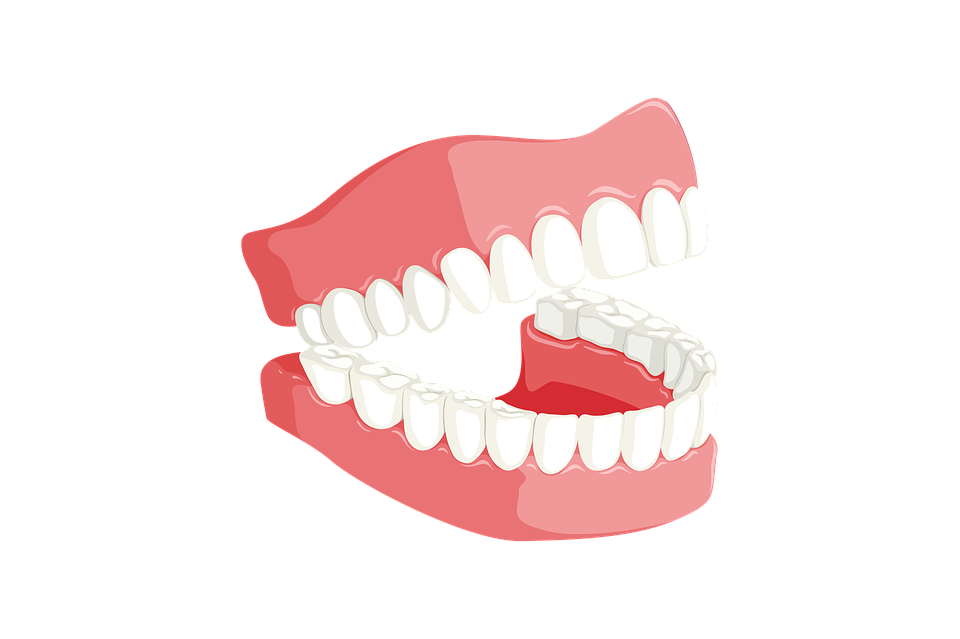Before we jump into the nitty-gritty of dentures, how to care for them, and how long they last, let’s dive into a pool of fascinating information about probably the most famous denture-wearer in U.S. history: George Washington.

(Pixabay / kreatikar)
You might have heard somewhere that George Washington wore a set of wooden dentures (which sounds terrible – can you imagine the splinters?), but that is, in fact, false. Washington had poor dental hygiene throughout his life, which led to his losing a significant portion of his teeth by his late 30s. He combated the problem by having several sets of dentures made from hippopotamus ivory, human teeth, and other materials.
Crazy fact: When Washington became the first President of the United States at age 57, he only had one original tooth left in his mouth, and when it eventually fell out, he gave it as a present to his denture-maker!
The rumor that Washington had wooden teeth was probably sparked by the fact that dentures were difficult to maintain under the best circumstances, and he had to send his away for cleaning. Most likely, his dentures would become cracked and brown – resembling wood – before he sent them to his denture cleaner.
Thankfully, dentures aren’t as much of a challenge as they were back then, but there are some things that you can do to keep your dentures looking cleaner and fitting better for longer.
What are dentures made from?
In the past, dentures have been made from all kinds of teeth and organic materials, but nowadays, they are typically made from porcelain or resin. The base portion of the dentures is generally a metal frame with a gum-colored resin that sits on top of the gums.
How long do dentures last?
Depending on what your dentures are made from, how you bite, and how you care for and clean your dentures, they can last anywhere from five to 10 years without any problems.
How do you care for dentures?
There are two aspects of denture-wearing that you need to be conscious of when you are caring for your dentures. If you want your dentures to last as long as possible, you need to take care of both them and the gums they sit on.
Your Dentures
Your dentist will give you specific instructions on how to care for your dentures, but there are some general rules that you should abide by.
- Steer clear of hard or chewy foods. These kinds of foods can break, chip, or bend your dentures to the point that they are uncomfortable or unusable.
- Avoid taking them out one-handed. Your dentures are made of strong, durable materials, but if you consistently remove them by raising one side before the other, you can change their shape. It’s best to remove both sides at the same time using both hands.
- Be cautious. There are few things worse than dropping your dentures on the hard counter or down the sink. Be extra careful by plugging the sink, always setting your dentures down on a soft towel, and storing them in a safe container.
- Soak them in cool water or denture solution overnight. Dentures are meant to stay in a moist environment, so if you leave them out on the counter overnight, they could dry out and warp or crack. Ask your dentist what denture solution would work best for your dentures.
- Only use denture-approved cleaners. Even though your dentures aren’t made from real teeth, you still need to brush them daily. Regular toothpastes are too abrasive for dentures, so be sure only to use cleaners that are denture-compatible.
Your Gums
Your gums are the second half of the equation in maintaining your dentures. If you don’t care for them properly, your dentures may not fit and could cause you pain.
- Rinse your dentures a few times throughout the day. You should always rinse your dentures after eating to remove any bacteria or food items that could stain your teeth.
- Take them out at night. Give your gums time to rest by taking your dentures out every night.
- Brush everything in your mouth daily. You may not have your original teeth, but you do have your original gums, cheeks, and tongue. Brushing the inside of your mouth promotes blood circulation and gets rid of harmful bacteria that causes bad breath and other problems.
What signs should you look for that your dentures need an adjustment?
Even though you don’t have your original teeth growing out of your gums, you should still visit your dentist every six months for a checkup. Your dentist will look for signs that the dentures don’t fit well, including:
- Pain in your jaw, neck, or shoulders
- Clicking sound when eating
- Sores on the gums
- Bad breath
- Difficulty eating or talking
- Other pain in the mouth
Your gums naturally shrink and swell over time, so if your dentures start fitting tighter or looser than normal and cause discomfort, you should visit the dentist as soon as possible.
Can I repair my dentures at home?
Just like your natural teeth, dentures can get damaged by normal wear and tear, incorrect cleaning procedures, trauma to the mouth, and age. Even though it may seem like a more budget-friendly approach to try and correct cracks or chips in your dentures at home, DIY denture repair is not recommended. Your dentures are fine-tuned to fit into your mouth, and making unqualified changes can affect your bite and cause mouth and jaw pain. It is always better to have your dentures modified by a trusted, qualified family dentist.
